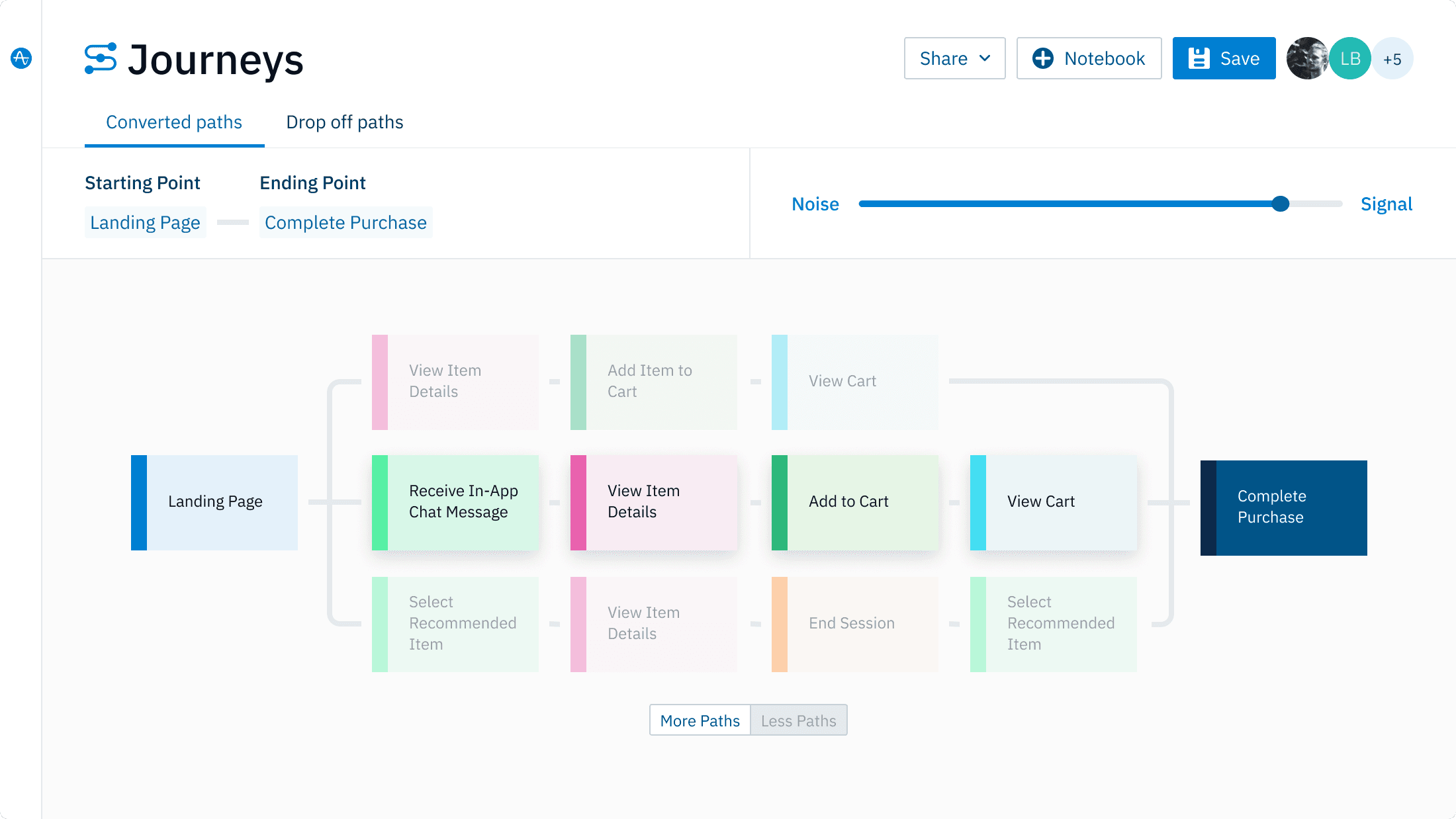An Event-Based Architecture <> Product Analytics
Does having an event-based data architecture mean you can do product analytics?
Over the past few years, the digital analytics industry has coalesced around an event-based data architecture. Event-based data models focus on collecting events and properties to track customer interactions. You can source these events and properties from any interaction: a web page, mobile app swipe, call center, physical store transaction, etc.
In the past, product analytics vendors (like Amplitude) pioneered the event-based model, while marketing analytics vendors like Adobe and Google leveraged a page/session-based model. Since most product analytics vendors began as mobile analytics vendors, the page/session-based data architecture didn’t make much sense since mobile apps behaved differently from traditional websites. For many years, traditional marketing analytics vendors attempted to force-fit the page/session-based architecture onto mobile apps (via SDKs). This approach was met with limited success.
Google and Adobe are moving their clients to the event-based architecture through new versions of their products (GA4 and CJA/AEP, respectively). This change is a positive one for the digital analytics industry since now almost all digital analytics vendors will use the same underlying data architecture. Adherence to a similar data architecture will make it easier for organizations to compare data from different analytics products and, in theory, make it easier to migrate from one vendor to another. Having an industry-wide standard data architecture puts more power and control in the hands of the consumer, which is usually a good thing.
However, I have spoken to some organizations who believe that once they have migrated to a digital analytics product that leverages an event-based data architecture, they can suddenly perform “product analytics.” Unfortunately, that is not the case. While it is true that using an event-based data architecture is essential for conducting product analytics, an event-based model alone does not magically turn an analytics product into a product analytics offering.
As I described in a past blog series, there are some differences between marketing and product analytics. Some of the key differences relate to the extent that the digital analytics product focuses on:
- Improving Campaign Effectiveness vs. Improving Product Experience
- Customer Acquisition vs. Customer Retention
- Anonymous vs. Known Users with User Profiles
- Limited Data Sets vs. Scaling for Large Data Sets
- Centralized Data Analysis vs. Enabling Data Self-Service
- Page Pathing/Content vs. Conversion Funnels
- Marketing Cloud Lock-in vs. Ecosystem Interoperability
While it is certainly possible to try and use marketing analytics products for product analytics functions, those that do this often limit themselves to only basic product analytics reporting. Product analytics vendors have been in the market for over a decade and have built many features and types of reports that simply don’t exist in other analytics platforms. I believe that marketing and product analytics platforms will converge. Still, for the next few years, I think there will be differences in analytics products, even if most use the same event-based data architecture.
At the same time, it will be easier for product analytics vendors to support marketing analytics use cases than for marketing analytics vendors to support product analytics use cases. Marketing analytics use cases, which typically include acquisition channel classification, multi-touch attribution, and advertising campaign reporting, are less complex than product analytics features. At Amplitude, we foresaw the changes in the industry and began supplementing our award-winning product analytics with marketing analytics functionality over a year ago. Organizations that get marketing and product teams to collaborate will be more successful in the long term. Our belief in the collaboration between product and marketing is why Amplitude has invested in a product roadmap that has made us to first digital analytics vendor to credibly provide both marketing and product analytics in one unified platform.
As the digital analytics industry evolves to event-based data architectures, I encourage you to jump on the bandwagon! But at the same time, keep in mind that there is more to product analytics than an event-based model. If you want to learn more about product analytics and how marketing and product analytics can be combined, feel free to reach out to Amplitude.

Adam Greco
Former Product Evangelist, Amplitude
Adam Greco is one of the leading voices in the digital analytics industry. Over the past 20 years, Adam has advised hundreds of organizations on analytics best practices and has authored over 300 blogs and one book related to analytics. Adam is a frequent speaker at analytics conferences and has served on the board of the Digital Analytics Association.
More from Adam





